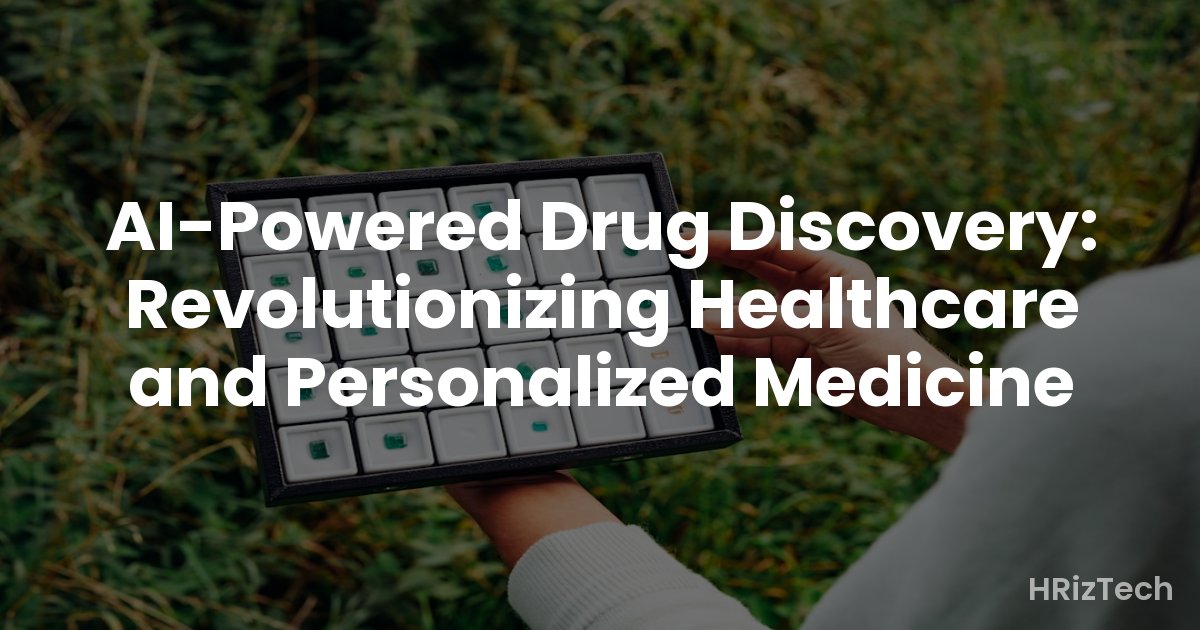AI-Powered Drug Discovery: Revolutionizing Healthcare and Personalized Medicine

AI-Powered Drug Discovery: Revolutionizing Healthcare and Personalized Medicine
- AI significantly accelerates drug discovery, reducing time and costs.
- Machine learning algorithms predict drug efficacy and identify potential side effects.
- AI enables personalized medicine by tailoring treatments to individual genetic profiles.
- Ethical considerations and data privacy are crucial in AI-driven drug development.
- The future of drug discovery hinges on integrating AI with other advanced technologies.
The Dawn of a New Era in Drug Discovery
For decades, the pharmaceutical industry has relied on lengthy and expensive trial-and-error methods to develop new drugs. This traditional approach, while yielding valuable advancements, often takes years, even decades, and incurs billions in costs. The success rate is also disappointingly low. However, a technological revolution is underway, spearheaded by artificial intelligence (AI), promising to transform the landscape of drug discovery and usher in an era of faster, more efficient, and potentially more effective treatments.
How AI is Accelerating Drug Development
AI's impact on drug discovery is multifaceted. Machine learning (ML), a subset of AI, plays a central role. ML algorithms are trained on massive datasets encompassing molecular structures, biological pathways, clinical trial data, and genomic information. These algorithms can then:
1. Identify Potential Drug Candidates:
AI can analyze vast chemical libraries and predict which molecules are most likely to bind to specific targets within the body, potentially treating diseases. This significantly reduces the number of compounds that need to be synthesized and tested in the lab, saving considerable time and resources.
2. Predict Drug Efficacy and Side Effects:
By analyzing complex biological data, AI can predict the efficacy of potential drug candidates and identify potential side effects before they enter human clinical trials. This allows researchers to prioritize the most promising compounds and minimize the risk of adverse events, ultimately improving patient safety.
3. Optimize Drug Design:
AI algorithms can optimize the chemical structure of drug candidates to enhance their potency, improve their absorption and distribution in the body, and minimize their toxicity. This fine-tuning process leads to more effective and safer medications.
4. Accelerate Clinical Trials:
AI can help identify suitable participants for clinical trials, predict the success of trials, and optimize trial design. This leads to faster and more efficient clinical trial processes, bringing life-saving drugs to patients more quickly.
Personalized Medicine: A Tailor-Made Approach
One of the most exciting applications of AI in drug discovery is its potential to revolutionize personalized medicine. By analyzing a patient's unique genetic makeup, medical history, and lifestyle factors, AI can predict which treatment is most likely to be effective for that individual. This personalized approach contrasts sharply with the traditional "one-size-fits-all" method, which often leads to suboptimal outcomes for many patients.
For example, AI can identify patients who are most likely to respond to a particular drug based on their genetic profile, minimizing the risk of adverse reactions and maximizing the chances of successful treatment. This allows for more targeted therapies, ultimately leading to better patient outcomes and a more efficient use of healthcare resources.
Ethical Considerations and Data Privacy
The rapid advancement of AI in drug discovery raises important ethical considerations. The use of large datasets containing sensitive patient information requires careful attention to data privacy and security. Robust data protection measures are crucial to prevent unauthorized access and ensure patient confidentiality. Transparency in the development and use of AI algorithms is also paramount to build trust and ensure accountability.
Furthermore, concerns about bias in AI algorithms need to be addressed. If the datasets used to train AI models are not representative of the diverse population, the resulting algorithms may perpetuate existing health disparities. Rigorous validation and testing of AI algorithms are crucial to ensure fairness and equitable access to innovative treatments.
The Future of AI in Drug Discovery
The integration of AI with other advanced technologies, such as genomics, proteomics, and nanotechnology, holds immense potential for transforming drug discovery. These synergistic approaches could lead to even faster and more efficient drug development processes, enabling the creation of novel therapies for a wider range of diseases.
The future of drug discovery is undoubtedly intertwined with AI. As AI algorithms become more sophisticated and datasets grow larger, we can anticipate even greater breakthroughs in the development of safe and effective medications. The potential to address unmet medical needs and improve human health is enormous.
Key Challenges and Opportunities
While the potential benefits of AI in drug discovery are vast, several challenges remain. These include the need for high-quality, well-annotated datasets, the development of robust and explainable AI algorithms, and the integration of AI into existing workflows within the pharmaceutical industry. Addressing these challenges will be crucial to fully realize the transformative potential of AI in this field.
Overcoming these obstacles will pave the way for an exciting future where AI plays a central role in developing personalized medicines tailored to individual needs, ultimately leading to a healthier and longer life for billions of people worldwide.
What are your thoughts on the ethical implications of using AI in drug discovery? Share your perspectives in the comments below!
Comments
No comments yet. Be the first to comment!